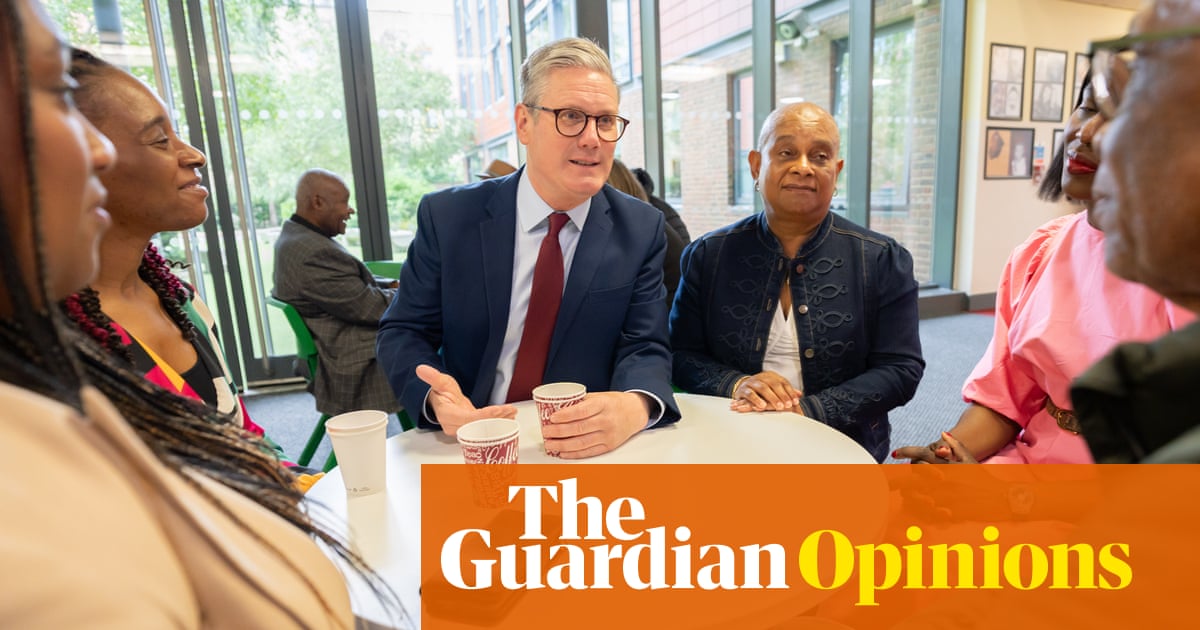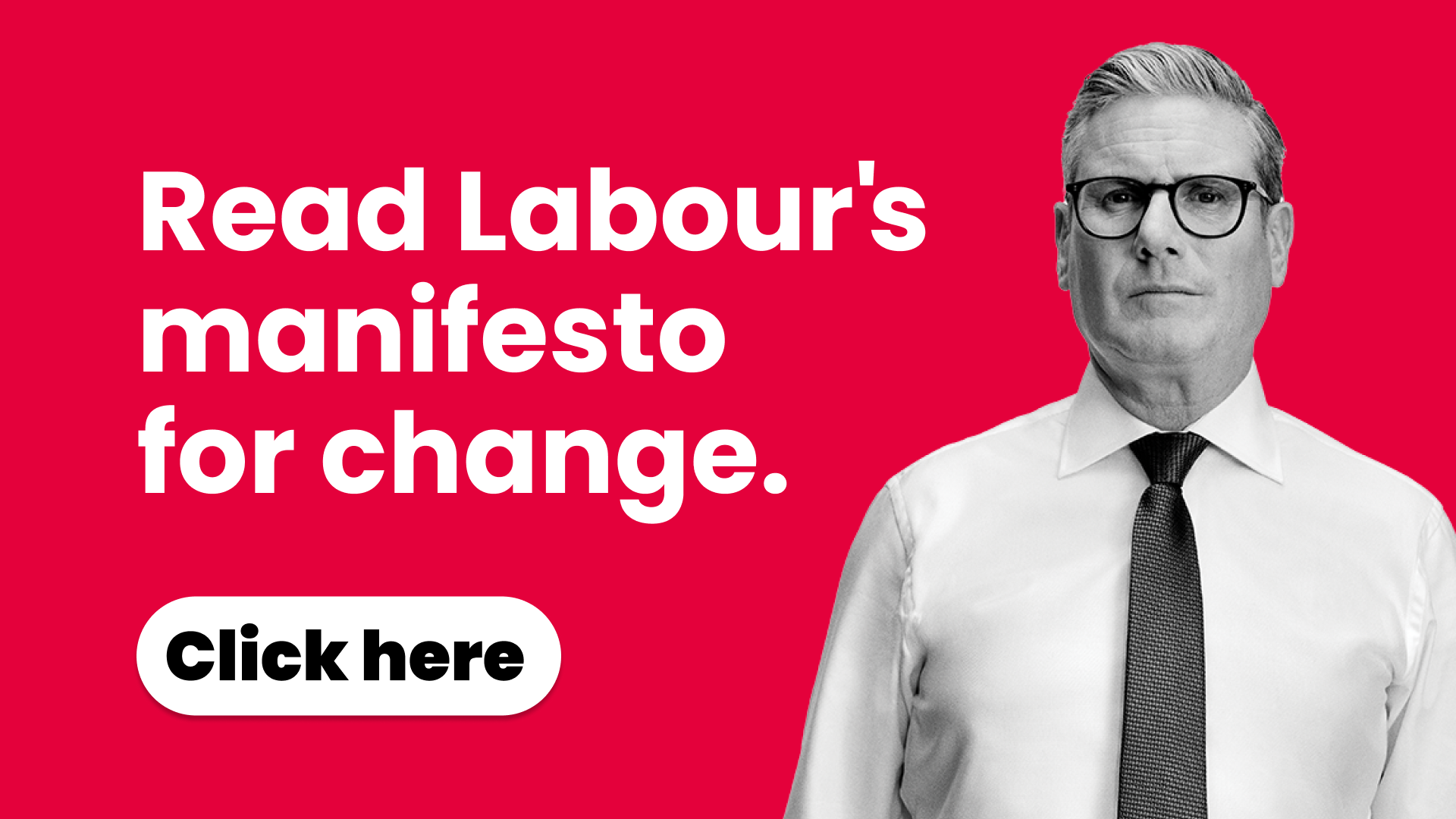London-based writer. Often climbing.
- 59 Posts
- 526 Comments

 5·2 days ago
5·2 days agoIs the message here supposed to be, both men did photoshoots at potteries, therefore they are politically aligned? Because if so I think you need a few more steps to actually make this case.

 11·2 days ago
11·2 days agoThat’s about one tenth of the annual MP’s salary. So, he has a far greater financial motive to remain an MP than he does to lose and collect the bet.

 2·2 days ago
2·2 days agoEven if his only incentives were financial, he will make more money by winning than by losing, because an MP’s salary and expenses are pretty good. So, even taking into account the innumeracy of your average MP, he does not have a financial incentive to lose.

 3·2 days ago
3·2 days ago“In the 2005 election, I busted a gut to win. I expected to lose. I had a bet on myself to lose in the 2005 election, and my bet went down the pan.”
He didn’t throw the '05 election, even when he bet against himself.

 14·3 days ago
14·3 days agoRight, but they weren’t doing that. There’s no evidence they were and no motive for them to do so. The comparison with athletes is not apt. A pro footballer who bets on himself and manipulates the outcome is still a pro-footballer afterwards. A politician who bets on themselves and deliberately loses is not a politician afterwards. It does not make sense to do it.

 2·3 days ago
2·3 days agoIn Britain, being nominated as a local election candidate simply involves signing some forms
They’re not local election candidates.

 32·3 days ago
32·3 days agoIt requires huge amounts of work to be a candidate. I know people who’ve run for parliament. One of them had previously run as a total no-hoper on multiple occasions, in order to prove he knew how to campaign well enough to get selected for a seat where he had a chance. He was so burned out by the selection process that having won the selection, he actually turned down the nomination, then quit politics altogether. The idea that he’d have deliberatey thrown any of those elections is ridiculous.

 23·3 days ago
23·3 days agoThe idea that anyone would put in all the work to get selected as a candidate, then decide it was a smart move to place a bet against themselves and throw the election to make a quick buck is ridiculous. There’s no way you could make enough money from the bet to make it worthwhile.

 315·3 days ago
315·3 days agoThere is no indication that any of the politicians who bet against themselves intended to throw the election. Politics is not sport.

 61·3 days ago
61·3 days agoThis idiot might well be the difference between Sunak holding his seat and losing it.

 720·3 days ago
720·3 days agoSee, I don’t care about this at all. There’s no suggestion he was going to deliberately throw the election. He didn’t have any inside information. He’s allowed to place bets!

 3·4 days ago
3·4 days ago
Takes a while before he gets to his actual suggestions, which are as stupid as you’d expect:
We know what a coherent right-wing agenda would look like: Net Zero immigration, energy sanity, a massive programme of planning reform, and housebuilding. We also know how to get there: identify, train, and promote talented people, primarily from the private sector, and smash the barriers to governing.
- ‘Net zero immigration’ - dystopian, unworkable, self-destructive
- ‘Energy sanity’ - meaningless, nobody thinks of themselves as proposing energy insanity, do they? I assume what he means is ‘Keep exploiting fossil fuels even though revenues are falling, prices are rising, there are obvious alternatives and climate change is accelerating’, which doesn’t strike me as ‘sane’. In any case, Labour’s plans are sane: accelerate the transition to the cheapest, cleanest forms of energy and keep using fossil fuels to keep the lights on while we’re managing the transition
- ‘massive programme of planning reform, and housebuilding’ - exactly what the Tories have failed to deliver and what Labour are proposing, which he assumes they’ll fail at for no discernible reason
And his plans for how to get there are just as asinine:
- ‘identify, train, and promote talented people’ - again, meaningless. Who could oppose this?
- ‘primarily from the private sector’ - why? Because. Sunak is ‘from the private sector’. So was Boris Johnson. How’s that worked out? And notice the weaselly ‘primarily’, too. Is that most? Some? All?
- ‘smash the barriers to governing’ - again, just meaningless waffle, something the Tories have continuously promised and found themselves unable to deliver. Brexit was meant to do this. It didn’t. Is this because, perhaps, the main ‘barriers to governing’ are that the Tories are totally detached from reality?
If you’re worried about this, the best way to prevent it is to donate to and volunteer with the Labour party. Yes, there’s a few places where voting for a different party is the better anti-Tory tactic if that is your priority, BUT:
- it’s hard to know for sure who the best vote is because the various tactical tools, polls, etc., often don’t agree
- very nearly everywhere Labour is your best bet anyway

 2·6 days ago
2·6 days agoThis is what He wanted.

 6·6 days ago
6·6 days agoIt’s certainly possible that sayings of other people were later attributed to him, but to really make this case you’d need to have quotations that were attributed to multiple sources, including him, if you see what I mean. Absent that, it could be true, but there’s no particular reason to believe it.
There are enough specific biographical details about Jesus of Nazareth to make it likely that there’s a specific, real central figure. For example, the fact that he was from Nazareth was a problem for his early followers (it didn’t match the Messianic prophecies), which is why they invented the odd story of the census, so that they could claim he’d been born in Bethlehem, the hometown of King David, from whom Jesus was supposedly descended. That seems unlikely to have happened if there hadn’t been a real, central historical figure.
Also, none of the early non-Christian sources claim he wasn’t real or that he was a composite, which they surely would have done if there was any doubt on the matter.

 82·6 days ago
82·6 days agoI agree with you that Jesus wasn’t God, who doesn’t exist, and that there were no miracles, which are impossible. However, this is not the same thing as saying that there’s no evidence for the existence of Jesus, the Jewish apocalyptic preacher.
The earliest documents about Jesus, such as the Pauline Epistles, were written by people who knew people who knew him. In a mostly illiterate society 2,000 years ago, this is about as good as evidence gets. It’s also the exact same kind of evidence as a journalist or researcher writing an account based on interviews with people. This was how, e.g, Herodotus wrote his histories. When Herodotus says ‘A guy rode a dolphin once’ we dismiss that. But we don’t say ‘The people in the Histories didn’t exist, except those for whom there’s physical evidence, which is about three of them, not including the author’. We do much the same with Jesus and the miracles.
If the Apostles had wanted, for some reason, to make up a guy, that would have been risky. Other people would have just said, ‘That guy didn’t exist’. If they had anyway decided to make up a guy, they’d have invented someone who actually fulfilled the Jewish propehcies of the Messiah, instead of inventing Jesus, who obviously didn’t. This suggests they didn’t invent him, which strengthens the plausibility of the evidence we do have.
A third way of looking at this is to ask if there are any comparable figures, religious founders from the historic era, who we now think were wholly made up in the way you’re suggesting. But there aren’t. The Buddha, Confucius, Mohammed, Zoroaster - they all certainly existed. Indeed, I can’t think of any figures form the time period who were actually imaginary.

 6·7 days ago
6·7 days agoDinosaurs aren’t people.

 71·7 days ago
71·7 days agoA great example of someone who seemingly logged into Twitter one day and said, It’d be neat if I let this website drive me completely insane.




















Sorry the proles aren’t behaving the way you’d like, boss.